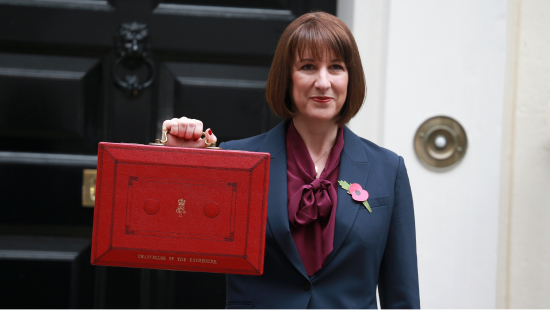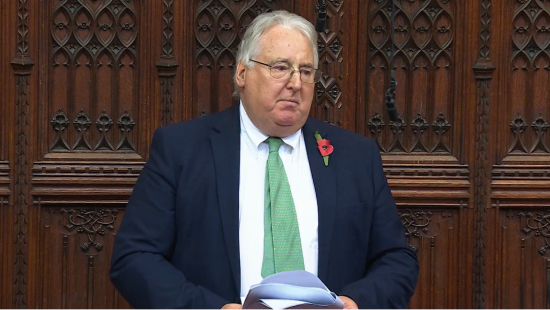News
Science in the spotlight: Autumn Budget 2024 and debate in the House of Lords
- Details
- 05 November 2024
Science, technology, and innovation have recently been at the heart of the political agenda. The Royal Society of Biology was pleased to provide a briefing for a debate on the contribution of science and technology to the UK economy in the House of Lords, just one day after some of the encouraging announcements in favour of research and development (R&D) in the Autumn Budget 2024.

Autumn Budget 2024
In the weeks leading to the Chancellor’s announcements, the RSB, alongside other leading organisations from across the research and innovation sector, had advocated against speculated cuts to the science budget. Reacting to the Autumn Budget 2024, we published a statement welcoming the recognition of the UK R&D sector as a pillar of the economy which will benefit from continued support to deliver societal benefits and economic growth.
Details on the £20.4bn R&D budget allocation for 2025-2026 were not available at the time, but the Campaign for Science and Engineering (CaSE) has since provided a breakdown of some of the measures impacting R&D. We’re pleased to learn that association to EU research programmes and partnerships, and the costs of the Horizon Europe guarantee scheme, are fully covered. The RSB had tirelessly argued in favour of Horizon Europe association until the association deal completion in September 2023.
The Department for Science, Innovation and Technology (DSIT) described the life sciences sector as “a cornerstone for positioning the UK as a leader in science and innovation” while announcing the launch of the Life Sciences Innovative Manufacturing Fund. It is, however, unfortunate that the grants are restricted to the biopharmaceutical and medical technology sectors. Biotechnology, agri-tech, food tech, nature-based solutions, and ecological, plant, and animal sciences are a few of the other important sectors and disciplines that are part of the life sciences research and innovation landscape. These sectors are central to economic growth, societal wellbeing, and delivering knowledge and integrated solutions to help address many of the most pressing global challenges that we currently face.
On the education front, we welcomed the investment in school education and teaching but noted that the higher education sector - a critical component of the R&D ecosystem and contributor to the economy - was not mentioned in the Chancellor’s speech.
This Autumn Budget comes ahead of the second phase of the Spending Review and plans for delivery of the Government’s Industrial Strategy in which life sciences has been identified as one of the eight growth-driving sectors. The RSB looks forward to engaging with these developments and will continue to advocate for the breadth of the life sciences to be recognised and supported.
Debate in the House of Lords
The RSB was among the learned societies that provided a briefing to the Viscount Stansgate prior to the debate on the contribution of science and technology to the UK economy in the House of Lords. We were pleased to be mentioned and thanked during the Viscount’s comprehensive opening speech.

We also commend the Viscount Stansgate for highlighting the importance of education (including the annual STEM for Britain event in Parliament), reiterating the life science sector’s “enormous potential to drive economic growth and productivity, delivering goods, services, treatments, medicines and vaccines that are critical to the nation’s health and our resilience” and showing enthusiasm for the new developments possible thanks to engineering biology. Our thanks go to all members of the House of Lords who contributed to such an enlightening and important debate.
A full recording of the debate can be viewed on Parliamentlive.tv

